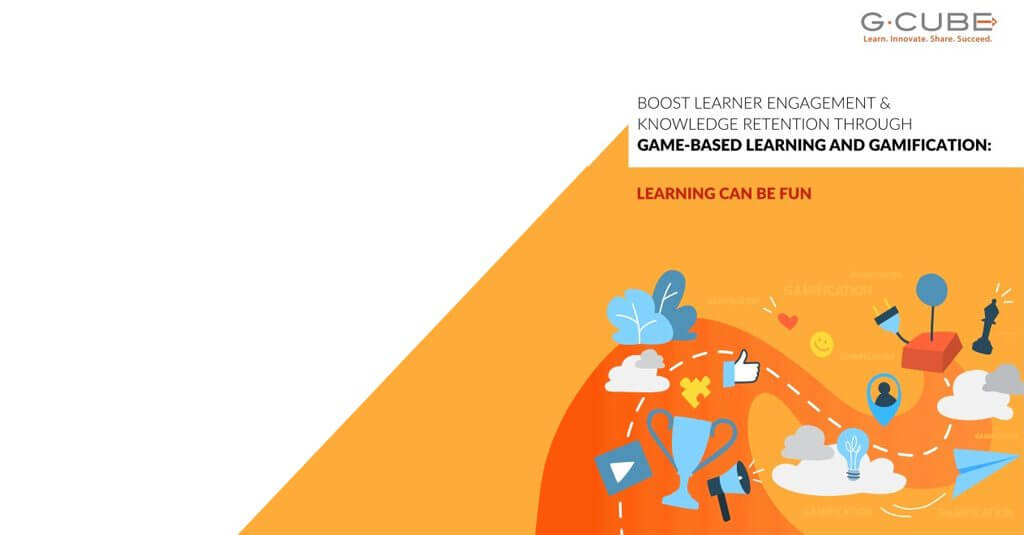Engagement is a key element to make training more effective and relevant. One of the most popular training methods to drive learner interaction is gamification. It has become a trending buzz for corporate training, where different game mechanics are embedded with non-gaming contexts. Modern organizations adopt this strategy to enhance overall employee engagement, knowledge retention and incentivize learners to perform better. Participants are rewarded with scores and badges on completing a certain level, which drives some sense of motivation and achievement among them. On the other hand, game-based learning uses real-time tactics to teach knowledge and skills. A learning game comprises of a quick start, game play and ending where learners know how to engage in a game activity and win the game.
Download the Free Whitepaper here!
Improving Your Learning Experience via Gamification
In a modern workspace, gamification plays a major role in providing an experience full of fun and excitement. Several practices where gaming elements are included are outlined here:
● Scores: When players give correct answers, they are immediately rewarded with scores to reflect their achievement and motivate them to play and learn more.
● Leaderboard: These highlight the list of players and their individual scores based on their achievements, thereby driving competitive success and teamwork.
● Reports: Different reports are extracted to analyze a different kind of data. For instance, performance of an individual is easy to track based on the responses of players from that team.
● Themes: Theme-based approach is followed to impart the same level of knowledge and cater to the diverse learning needs. Fantasies like Island, Forest, Car Racing, Stone Age and more can be included.
On the other hand, game-based learning proves to be an effective tool for modern workforce training. Few practices followed by organizations to deliver an engaging gamified learning experience are outlined here:
● Defining Objectives – It is important to define your learning needs program before delivering the content. Different gamification elements are arranged in accordance to the logical progression of the training program.
● Know your Audience – It is crucial to understand the learners and their specific needs. Knowing the bespoke needs of diversified learners, you should incorporate effective gaming elements for a continuous learning experience.
● Connect learners through Gamification – For a smoother content delivery, gamification elements such as badges, scores and points are included. It makes learning complete fun, thereby motivating learners to access more courses and perform better.
● Analyze & Evaluate – Managers evaluate the overall scores of employees based on the quizzes and other activities they participate in. The results are then calculated to assess individual progress and encourage them to perform better.
The main idea behind integrating games in e-learning is to boost the engagement level. The world of fantasy is interactive in a way that the real world is not. So, integration of games with e-learning boosts learner engagement, motivation and retention levels. These are the factors that have resulted in improving the trend of gamification. Through games, learners play with an aim to win, thereby accessing more courses and improving their knowledge competency levels. For more details, download the whitepaper here!








